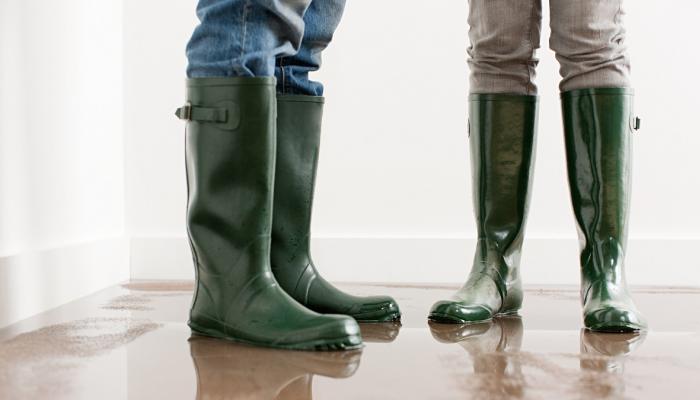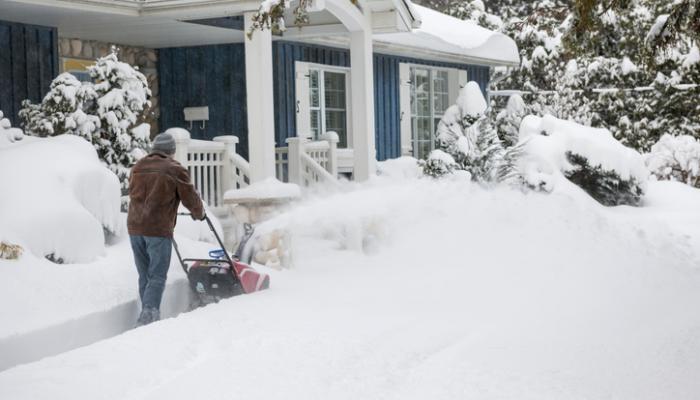Congratulations on your new home! This milestone comes with excitement, responsibility and a lot to learn. Financially speaking, buying a home is a big deal. But owning a home often means more responsibilities, especially if you are a first-time homeowner.
Whether you've just unlocked the door to your first house or are settling into your dream home, there are essential steps to take to ensure a smooth transition.
1. Update Your Mailing Address
Immediately after you move, it's important that all your mail reaches you at your new address. Updating your mailing address is more than just redirecting your magazines and daily mail; it's making sure that all your financial statements, bills and personal letters are accurately delivered to you. This will prevent any potential issues like missed payments or loss of sensitive information.
You can easily update your address online through the United States Postal Service or by visiting your local post office. Don't forget to also notify banks, credit card companies and your place of employment about your change of address.
2. Address Maintenance Needs
Taking care of your home's maintenance needs early can save you a lot of trouble and money in the long run. Start with a thorough walkthrough of your property to identify any potential issues. Look for signs of wear and tear, check all appliances and ensure your heating, ventilation and air conditioning (HVAC) system is functioning correctly.
Prioritizing these tasks will help you create a comfortable living environment and protect your investment. Regular maintenance, like cleaning gutters and checking for leaks, can prevent small issues from becoming expensive problems.
3. Get Insured
Homeowners insurance is crucial for protecting your home and belongings against unforeseen events such as fires, theft and natural disasters. Depending on your location, you might need additional policies for flood or earthquake coverage, which are not typically included in standard homeowners insurance. Some policies may offer liability protection in case someone is injured on your property.
You’ll need to have insurance in place in order to close on a loan. Once you’re in the home, you can shop around for a new policy at whatever interval you choose. Take the time to research and choose an insurance plan that best fits your needs, providing adequate coverage for your financial security and peace of mind.
4. Change Locks
Your home's security should be a top priority. Changing the locks on all exterior doors as soon as you move in is a simple yet effective step to secure your home. You never know how many copies of your original house key are out there, so this will guarantee that only you and those you trust have access to your home.
Consider upgrading to high-security locks or smart locks for an added layer of protection. This small investment can significantly improve your sense of security and privacy in your new home.
5. Create a Chore Schedule
Maintaining a home involves regular chores and upkeep. To manage these responsibilities effectively, create a chore schedule that outlines all the tasks that need to be done daily, weekly and monthly. This could include cleaning, lawn care and home maintenance tasks.
This can help prevent chores from piling up over time. A well-planned schedule also distributes the workload evenly, preventing any single person from becoming overwhelmed and making sure your home stays clean and well-maintained.
6. Meet Your New Neighbors
Building a good relationship with your neighbors can be incredibly rewarding. Not only does it create a friendly community atmosphere, but it also establishes a network of support for times when you might need to watch each other's homes during vacations or emergencies.
Meeting your neighbors can start with a simple greeting or small talk. You might even consider hosting a casual get-together. Friendly relationships with neighbors enhance the sense of community and security in your new environment.
7. Be Wary of Mortgage Scams
New homeowners can sometimes be targets for scams, particularly mortgage offers related to refinancing or loan modifications. Be cautious of any communication that asks for personal information or payments related to your mortgage without verifying its legitimacy.
Always contact your mortgage lender directly through official channels if you receive suspicious offers or requests. Educating yourself about common scams can help you avoid becoming a victim and ensure your financial safety.
Answer a few questions below to speak with a specialist about what your military service has earned you.
Budgeting Tips for New Homeowners
As new homeowners navigate the world of mortgages, property taxes and unexpected maintenance costs, it's good to have sound financial strategies in place. Here are some essential financial tips to ensure new homeowners can maintain their investment and enjoy the comfort of their new home without breaking the bank.
Prepare for Your First Payment
Your first mortgage payment will typically need to be made within 60 days of closing on your new home and will generally be due on the first of the month at least 30 days after closing. For example, if you close on your home on March 15, your first payment will likely be due May 1.
Staying on top of current payments is one of the simplest ways to maintain a healthy mortgage. Late mortgage payments can incur huge penalties and significantly impact your credit score. An even scarier realization is the fact that late mortgage payments can trigger foreclosure.
Create a Monthly Budget
The 50/30/20 rule is a simple yet effective budgeting guideline for new homeowners. It suggests budgeting 50% of your income for essentials, 30% for wants and 20% for savings or debt.
Essentials typically include primary expenses such as mortgage payments, utilities and groceries. Wants include items like home upgrades, new furnishings and leisure activities.
The last 20% is earmarked for emergency funds, extra mortgage payments, retirement contributions and repaying other debts. To protect your family and your future, strive to maintain three to six months’ worth of basic living expenses in a separate account as an emergency fund.
While big-ticket items like furniture and appliances can be tempting after buying a new home, it’s helpful to avoid large purchases when settling into your new budget. Spend slowly and schedule big expenses over time. Give yourself a few weeks to figure out which items are essential and space out your purchases.
Unlock Successful Homeownership
As you settle into your new home, remember that the keys to successful homeownership extend beyond the front door. By prioritizing security, maintenance and financial planning, you can lay a solid foundation for this transition.
For more information on responsible homeownership, check out our other resources for homeowners.
Related Posts
-
 How Often Should You Shop for Homeowners Insurance?You should try to review your homeowners insurance options at least once a year. Here's a guide on how often you should shop and compare home insurance.
How Often Should You Shop for Homeowners Insurance?You should try to review your homeowners insurance options at least once a year. Here's a guide on how often you should shop and compare home insurance. -
 Five Essential Tips for Selling Your Home This WinterWinter is usually a slower time for real estate, but it also provides some unique opportunities to show off your home to particularly motivated buyers. Here are five tips for selling your home in a winter wonderland.
Five Essential Tips for Selling Your Home This WinterWinter is usually a slower time for real estate, but it also provides some unique opportunities to show off your home to particularly motivated buyers. Here are five tips for selling your home in a winter wonderland.


